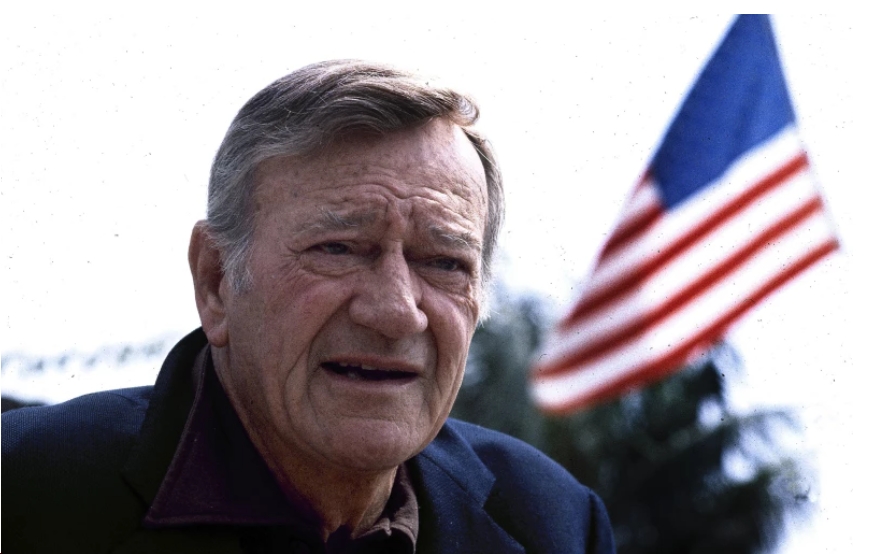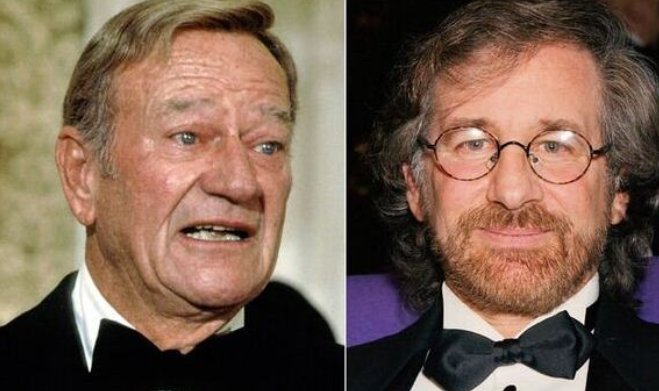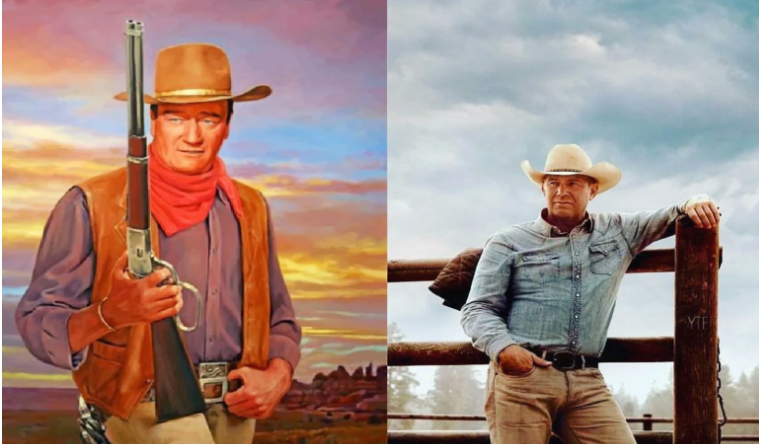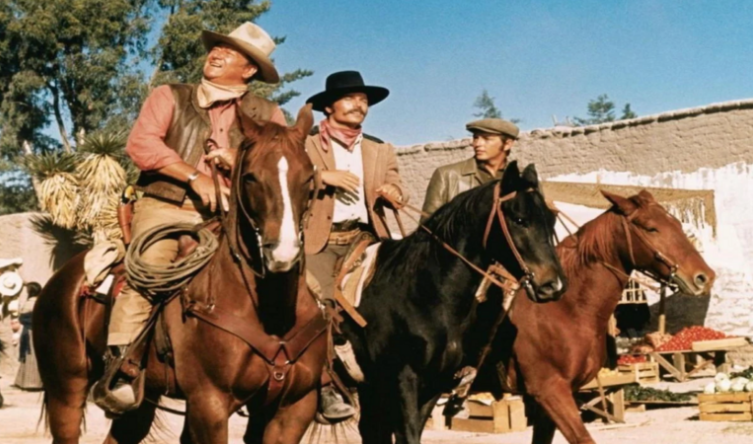In 1973, Marlon Brando orchestrated an Oscars scandal.
And thus was born an absurd myth targeting John Wayne.
Rather than accept the best actor award for his role in the Godfather, Brando skipped the Academy Awards altogether. Instead, he sent an Apache activist, Sacheen Littlefeather, in his stead to protest Hollywood’s infamously poor treatment of Native Americans. Littlefeather’s surprise appearance roiled a town filled with easily roiled people. In fact, during her very brief, 74-second “acceptance” speech, Wayne, known even then as a reactionary right-winger, attempted to rush the stage, likely with the intention of physically removing, or even assaulting, the slight Native American woman.
Wayne’s effort to remove Littlefeather by force was thwarted only after the intervention of no fewer than six security guards. Don’t believe me? Ask the New York Times, which parroted the security guard anecdote as fact in its Oct. 3 obituary for Littlefeather.
“Her appearance at the 45th Academy Awards was the first time a Native American woman had stood onstage at the ceremony, she in a glimmering buckskin dress, moccasins and hair ties,” the paper reported . “But the backlash and criticism was immediate. The actor John Wayne was so unsettled that a show producer, Marty Pasetta, said security guards had to restrain him so that he would not storm the stage.”
It’s shocking! It’s terrible!
But – did this really happen? Did a 65-year-old John Wayne, who had recently undergone surgery for lung cancer, including the removal of two ribs, really attempt to charge at Littlefeather, only to be stopped by a half dozen security guards? From my own brief, off-and-on-again research, it doesn’t appear so. It appears the story is mostly fiction, the product of years of re-telling and revisions, with only a small kernel of truth at its center.
For the truth of the matter, we turn to film historian and journalist Farran Smith Nehme, whose exhaustive investigation turned up no evidence Wayne ever attempted to rush Littlefeather or that he had to be restrained by a half dozen security guards. In fact, according to Nehme, who reviewed Oscars footage, inspected press archives, and spoke with biographers, the story appears to be the invention of a single producer, whose recollection of Wayne’s reaction to Littlefeather’s speech has grown more fantastic and unbelievable with the number of times he has told it.
The problems with the anecdote are many, according to Nehme, including the timing of the alleged incident, Wayne’s personal health, the secrecy surrounding Littlefeather’s surprise appearance, the absence of corroborating eyewitness accounts, the lack of mentions in contemporaneous news reports, and even the Oscars stage design itself.
“John Wayne, then 65 years old, had undergone lung-cancer surgery in 1964,” she writes. “The surgeons made a 28-inch incision, removing two ribs and the entire upper lobe of his left lung. The operation saved his life, but left Wayne with daily breathing problems that he worked mightily to conceal, despite requiring a supplemental oxygen tank on the sets of some subsequent movies.”
Yet, we’re to believe this same man flew into a rage 45 seconds into Littlefeather’s speech and then battled six security guards? Oh, and he did all this within the span of 29 seconds! Wayne would’ve had only these few precious seconds to react because the protest portion of Littlefeather’s address lasted only 29 seconds, and it came at the very end of her speech. Further, as the Native American activist herself has stated repeatedly, no one knew the content or purpose of her prepared remarks. Wayne didn’t have time to prepare a response. He would’ve had to react on the fly, in the moment.
Moreover, in a 2021 documentary, Littlefeather describes John Wayne as being “in the wings.” Yet, as footage of the event shows, the stage that year had “no wings to speak of,” as Nehme notes, and “no John Wayne.”
Perhaps Wayne was somewhere further backstage. This only complicates the story, as it suggests he sprang into action, made it to the “wings” of the stage somehow, and tussled with six security guards all in less than 30 seconds. One wonders whether he brought his oxygen tank with him. There’s also the damning fact that none of the trade papers at the time mentioned the alleged incident, according to Nehme’s review of dozens of entertainment reports published between 1973 and 1974. In a town that loves celebrity gossip nearly as much as it loves itself, it’s hard to believe news editors passed on a story involving John Wayne wrestling security guards at the 45th Academy Awards.
There’s more ( you really should read Nehme’s entire report ), but we’ll stop at this last point: The man who appears to be solely responsible for the security guard legend is Oscars show director Marty Pasetta. He claimed in a 1988 interview Wayne needed to be held back by six men. This interview is the thing everyone cites when they repeat the story. The problem with Pasetta’s 1988 version of events is this: It’s one of many. He recounted the Oscars incident in interviews in 1974, 1975, and 1984. With each telling, Pasetta’s memory of Wayne’s reaction evolved slightly to include increasingly unflattering details. Though there are slight deviations in the stories told between 1974 and 1984, none of them mention security guards or attempts to rush the stage. It wasn’t until the late 1980s, long after Wayne’s death, that Pasetta “revealed” the actor needed to be restrained.
Equally as notable as the gradual changes in Pasetta’s recollection of that night at the Oscars is the fact no eyewitnesses have ever corroborated his tale.
“John Wayne angry and yelling, yes, I imagine so,” Nehme writes at the conclusion of her investigation. “Six security guards holding him back lest he race onstage and attack like he’s King Kong: Until one steps forward, I’m going with ‘never happened.’ After a great deal of research, my conclusion is that this began as an exaggerated tale Marty Pasetta told to interviewers — he wasn’t the first Hollywood personality with a story that got more exciting each time it was told, and he won’t be the last — and has become a persistent urban legend.”
She adds, “And another thing. There is a lot of highway between ‘John Wayne was angry backstage about Sacheen Littlefeather’s Oscar speech,’ and what it’s morphed into, ‘John Wayne had to be physically prevented from dragging her off stage’ or, and this is simply a lie, ‘John Wayne tried to assault’ the activist. A leap across a chasm of logic is being made by people who plainly have never read much, if anything, about John Wayne the actual person, versus John Wayne, player of manly roles, far-right conservative, and giver of racist interviews. But the off-screen and off-duty John Wayne wasn’t a brawler, especially not with women.”
Wayne biographer Scott Eyman himself told Nehme the allegation is ludicrous. “I don’t doubt he would have been pissed off by Brando’s rejection of an award Wayne and his generation had considerable respect for, but the idea of him trying to storm the stage like Lawrence Tierney on a bender is ludicrous,” he said.
Yet, despite all the obvious red flags, Pasetta’s 1988 version of events is accepted now as fact. It’s an article of faith, as evidenced by its casual mention in the New York Times’s obituary this week for Littlefeather.
It makes sense.
The nation is currently in the throws of an iconoclast revolution, where onetime heroes and legends are being torn down in the name of “equity” and “social justice.” John Wayne is exactly the sort of person this revolution targets. He supposedly represents the worst of the U.S.: A privileged white male, an outspoken conservative, and a traditionalist. That he also has an unsavory record of racially problematic remarks makes the security guard myth “too good to check,” as they say. It’s not surprising, then, that an anecdote alleging John Wayne attempted to assault a Native American woman would be accepted at face value by the Left, the Too Online, and New York Times staffers. They’re already inclined to believe it. To them, it’s exactly the sort of thing a traditional American “hero,” especially one with a history of racially insensitive and derogatory remarks, would do.


 Entertainment7 months ago
Entertainment7 months ago
 Entertainment8 months ago
Entertainment8 months ago
 Entertainment8 months ago
Entertainment8 months ago
 Entertainment10 months ago
Entertainment10 months ago
 Entertainment7 months ago
Entertainment7 months ago
 Entertainment8 months ago
Entertainment8 months ago
 Entertainment8 months ago
Entertainment8 months ago
 Entertainment7 months ago
Entertainment7 months ago



























